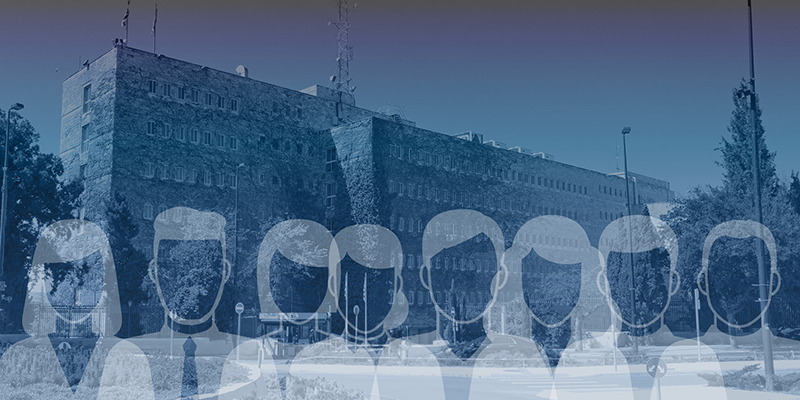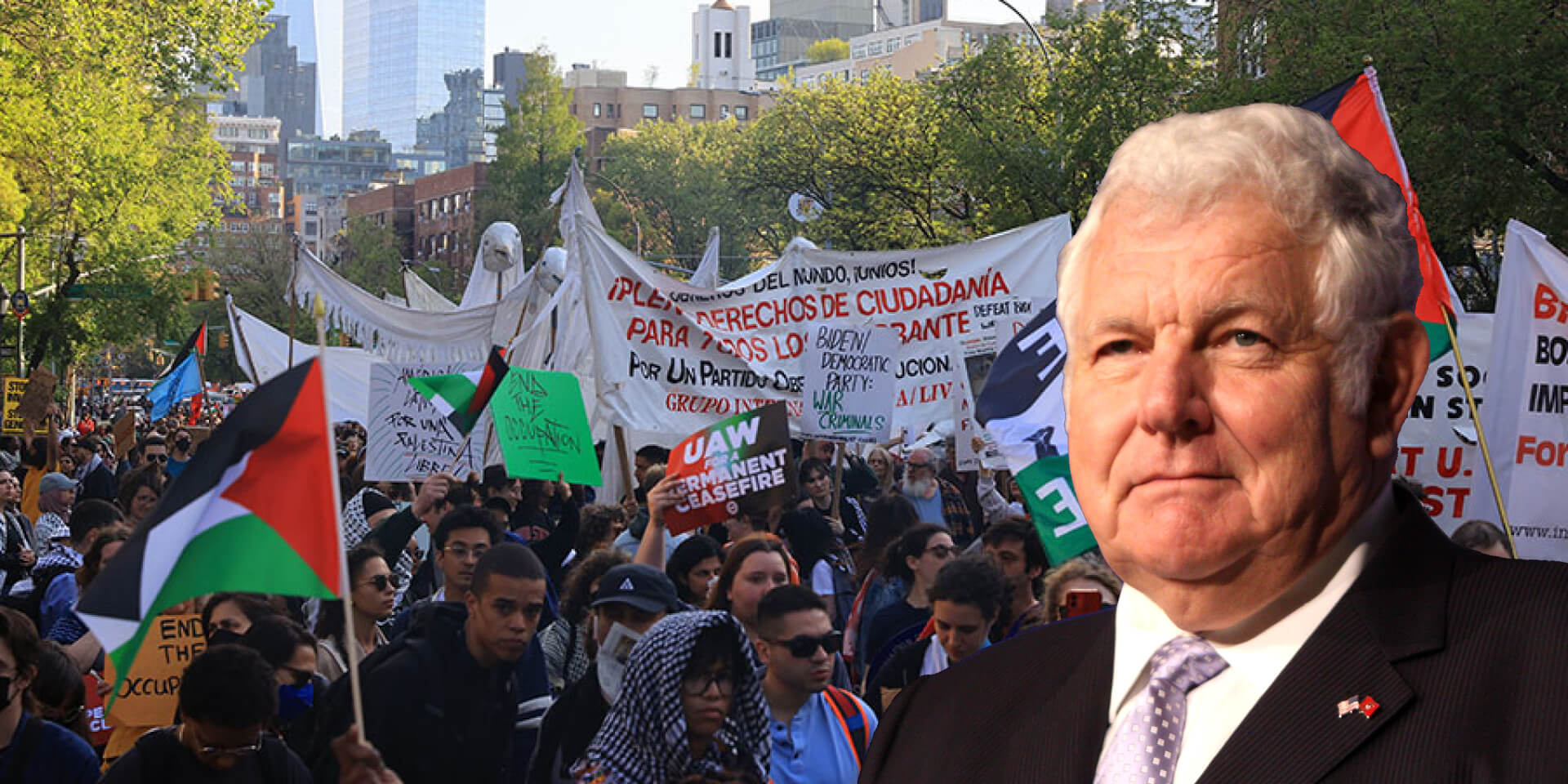Revealed: National Security Ministry Ends Cooperation with Group Fighting Against Domestic Violence
Shomrim has exclusively disclosed that the Ministry has ceased funding a program operated by the Michal Sela Forum, providing a vital alternative to shelters for victims of domestic violence. Over the 18 months since its inception, the program has assisted approximately 270 women. Lili Ben Ami, the founder and CEO, expresses her astonishment at learning through the media that the government does not intend to renew the agreement, especially during a period of war when there has been a 20 percent surge in the demand for protection for victims of domestic violence. The National Security Ministry responds by stating, 'We intend to explore additional alternatives.'
.jpg)
.jpg)
Shomrim has exclusively disclosed that the Ministry has ceased funding a program operated by the Michal Sela Forum, providing a vital alternative to shelters for victims of domestic violence. Over the 18 months since its inception, the program has assisted approximately 270 women. Lili Ben Ami, the founder and CEO, expresses her astonishment at learning through the media that the government does not intend to renew the agreement, especially during a period of war when there has been a 20 percent surge in the demand for protection for victims of domestic violence. The National Security Ministry responds by stating, 'We intend to explore additional alternatives.'
.jpg)
Shomrim has exclusively disclosed that the Ministry has ceased funding a program operated by the Michal Sela Forum, providing a vital alternative to shelters for victims of domestic violence. Over the 18 months since its inception, the program has assisted approximately 270 women. Lili Ben Ami, the founder and CEO, expresses her astonishment at learning through the media that the government does not intend to renew the agreement, especially during a period of war when there has been a 20 percent surge in the demand for protection for victims of domestic violence. The National Security Ministry responds by stating, 'We intend to explore additional alternatives.'
Lili Ben Ami (from the left), "Michal Sela Dogs" volunteers and minister Ben-Gvir. Photos: Nir Kidar, Michal Sela Forum, Reuters

Roni Singer
February 19, 2024
Summary


Listen to a Dynamic Summary of the Article
Created using NotebookLM AI tool
In June last year, Lili Ben Ami, the CEO of the Michal Sela Forum, which aims to promote and develop innovative life-saving tools for eradicating domestic violence, was invited to the studios of Channel 14 television news, where she spoke proudly about the first year of the life-saving cooperation between the NGO she founded to combat domestic violence , and the National Security Ministry. As part of this cooperation, a protection plan was launched and funded jointly by the Ministry and the Forum. There were two unique parts to this project: the first was the Michal Commando Unit, which provided a framework of protective measures for victims of domestic violence. The second was an innovative project which provides victims of domestic violence trained guard dogs. Thus far, 10 women have received a dog and the Michal Commando Unit has provided services to around 270 women.
However, shortly after that celebratory interview, in which Ben Ami praised and thanked the National Security Ministry for coming to the assistance of victims of domestic violence, the funding simply dried up. Shomrim can now reveal that the Ministry has decided not to renew the agreement with the Forum. Officials from the NGO, who have not yet received official notification, hope that the Ministry will nonetheless continue to fund the defensive program. It is worth noting that the financial cost to the Ministry verges on the negligible in terms of its total budget – somewhere between 500,000 shekels and 1 million shekels a year ($140,000-280,000).
Ben Ami, who founded the Forum in 2020 after her sister Michal Sela was murdered by her husband, told Shomrim in response: “I was astonished to discover through the media that the National Security Ministry does not plan on renewing the agreement – and during a time of war, when there has been a 20 percent spike in the demand for protection for victims of domestic violence.”
“Eighteen months ago, in August 2022, we signed an agreement for a joint project with the National Security Ministry valued at 2 million shekels and the Ministry was supposed to fund half of that. The agreement expired last year and unfortunately it has not been renewed since then. We are in constant dialogue with all those involved in the field, including shelters, welfare centers and local authorities. Everyone is experiencing a rise in demand for protection for at-risk women.”
The National Security Ministry told Shomrim in response that, “the collaboration between the Ministry and the Michal Sela Forum, in the framework of joint initiatives, led to the establishment of two important projects to protect women. The collaboration, which was defined as a pilot, ended several months ago and it was decided not to extend it due to the high price quotation that the NGO submitted to the Ministry, with the emphasis on accompanying expenditure that did not previously exist. Therefore, the Ministry intends to examine additional alternatives to promoting these important initiatives.
“The National Security Ministry will publish a call for proposals, in which the Michal Sela Forum will have an equal opportunity to compete. It should also be stressed that the Ministry sees huge importance in promoting initiatives that are designed to protect women and will act to advance that goal.”
.jpg)
“I was astonished to discover through the media that the National Security Ministry does not plan on renewing the agreement – and during a time of war, when there has been a 20 percent spike in the demand for protection for victims of domestic violence.”
Thirteen Verified Incidents were Prevented by the Forum
The extraordinary cooperation between the National Security Ministry and the Michal Sela Forum was launched in the summer of 2022, when the minister was Omer Bar-Lev and the director general was Tomer Lotan. At that time, and against the backdrop of an alarming rise in the number of women being murdered, there were intense discussions within the ministry over what measures it could take as part of the battle to reduce the number of femicides and the number of women at risk from their partners. In 2023, for example, 29 women were murdered in Israel, the vast majority of them by a close relative in their own homes, as part of what women’s groups define as “intentional killing with a gender-related motivation.” This is a steep rise compared to previous year: in 2022, 22 women were murdered in Israel and in 2021 there were 23 cases of femicide.
Among the options that were presented to the minister and his director general at the time was cooperation with the Michal Sela Forum. The women who ran the NGO were clear that, in order to provide an effective solution to the growing problem, they had to get government ministries to come on board with the projects – especially the ministry which is responsible for ensuring the personal safety of all Israeli citizens. The joint work between the Ministry and the NGO worked, even though it required special groundwork to get it off the ground since, until that time, the ministry had not worked with an external organization. Even today, there are no similar projects. The sides agreed that they would jointly fund a project to protect women through matching: for every shekel that the Michal Sela Forum invested in the project through donations, the Ministry would contribute an equal sum, thereby doubling the funding.
During its first year of operation, which started in mid-2022 and ended in August 2023, the project had a budget of 2 million shekels: half of it from donations raised by the NGO and half from the Ministry. After the Knesset election in November 2022 and the appointment of a new minister and a new director general, it was decided that the project would be continued, but that its budget would be slashed to just 1 million shekels.
During the course of the year, the project was closely examined and an as-yet unpublished report into its effectiveness has been written. Although it has yet to see the light of day, it is clear that the study found high levels of satisfaction on the part of women who were helped by the project, both the Michal Commando Unit and the guard dog project. They reported feeling increased personal security and quality of life, especially praising the project compared to the only other solution that the state had offered them until now: entering a shelter for abused women. According to data gathered by the Forum, during the course of the year it was operational, there were 13 “verified incidents” when the panic alarm distributed by the Michal Commando Unit saved an at-risk woman, with a member of the unit arriving on the scene within minutes.

According to data gathered by the Forum, during the course of the year it was operational, there were 13 “verified incidents” when the panic alarm distributed by the Michal Commando Unit saved an at-risk woman, with a member of the unit arriving on the scene within minutes.
Between Electronic Handcuffs and Gun Permits
This is not the first time that there have been disputes between the Ministry and women’s advocacy groups over the past year. In June last year, National Security Ministry Itamar Ben-Gvir sought to introduce an amendment to the Domestic Abuse Monitoring and Prevention of Domestic Violence Law – a bill that, thanks to the law of continuance, was passed on to the new government after the previous one drafted the bill and did all the groundwork. “This proposal will balance between the vital need to fight against domestic violence and prevent violence and our duty to safeguard against false complaints and allegations and to protect the rights of innocent people,” the minister said at the time. The move was met with widespread criticism at the time since the culprit in many cases of domestic violence does not have a prior conviction – and in some cases the violent partner has no criminal history whatsoever. The legislation was passed with Ben-Gvir’s amendment, but, in practice, judges are allowed a large degree of discretion when it comes to imposing monitoring.
Another controversial issue is a direct result of the policy of granting gun permits to more and more Israeli citizens – something that Ben-Gvir has campaigned for vigorously. In addition to statements from the Welfare Ministry over concerns that violent men will be given a license to hold a firearm that will be used against their partners, the Michal Sela Forum published a stark warning over the loosening of criteria for obtaining a gun permit. “I understand the need to increase personal security,” Welfare Minister Yaakov Margi told Haaretz at the time, “but we must ensure that no woman or child will be hurt. Any report about violence in the family must be a reason for revoking a gun permit.”
Ben Ami, for her part, wrote to Ben-Gvir explaining her concern that weapons could end up in the wrong hands and that there has already been an increase in the number of women contacting the Forum and saying that they feel their lives are in danger. Ben-Gvir responded by saying that “the attempt to portray all men as potential murderers is extremely grave,” adding that he would encourage every Israeli woman to take advantage of her right to bear arms.
.jpg)
In addition to the above comments, Ben Ami also submitted the following response to Shomrim: “The Micha Sela Forum currently provides security and protection using advanced technological measures to 273 at-risk women and around 900 children. All of these women are single mothers and are being threatened by their former partners. The threat to their lives is known and recognized by the authorities. The money that funds the freedom and liberty of these women comes exclusively from donations from the general public and several large companies, which have rallied round for the sake of keeping women safe in their homes.
“Fortunately, as of this moment, the Forum has managed to independently raise the donations needed to provide protection to every at-risk woman who contacts us and we do not currently have a waiting list. Having said that, it is not proper that protection for at-risk women, especially at a time of war, is being provided by private organizations and is not being funded by the state – and that is something we must change.”













